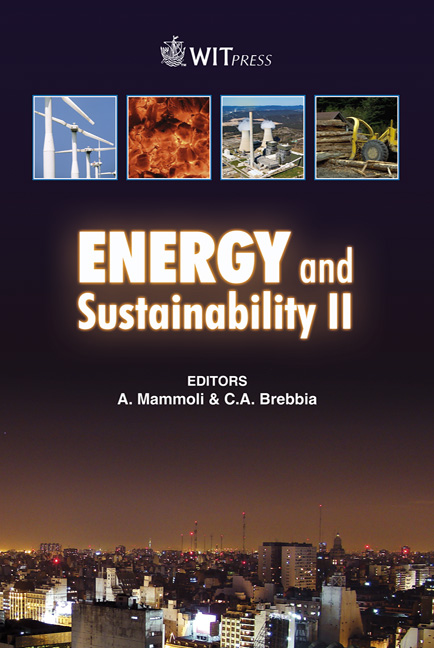Environmental And Exergetic Performance Of Electrolytic Hydrogen Using Life Cycle Assessment
Price
Free (open access)
Transaction
Volume
121
Pages
10
Published
2009
Size
508 kb
Paper DOI
10.2495/ESUS090361
Copyright
WIT Press
Author(s)
J. L. Gálvez, L. Pazos, C. García, G. Martínez & A. González García-Conde
Abstract
Hydrogen is proposed as the most promising solution as a mid and long-term energy carrier for transport and electricity generation, attending to fossil fuels scarcity and the necessity of reducing greenhouse gas emissions. Several problems have to be solved before hydrogen technology could be applied. One of the main challenges is to develop a sustainable and cost-efficient process for hydrogen production. In this regard, this work intends to evaluate several possibilities of electrolytic hydrogen production from different scales (from a few Nm3/h to several hundred) and different electricity origins (solar, wind and grid) and to compare electrolysis with steam methane reforming, (which is, nowadays, the preferred method for hydrogen production). The evaluation and comparison are made by Life Cycle Assessment tools. The results are focused on the environmental performances of each process, energy ‘renewability’ and their exergetic behavior. The performed analysis shows that electrolytic hydrogen from wind electricity is the best alternative because of its low associated greenhouse gas emissions, its low environmental impact and the best grade of renewability of the produced hydrogen. Keywords: life cycle assessment, hydrogen production, electrolysis, greenhouse gases.
Keywords
life cycle assessment, hydrogen production, electrolysis, greenhouse gases





